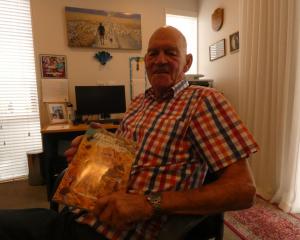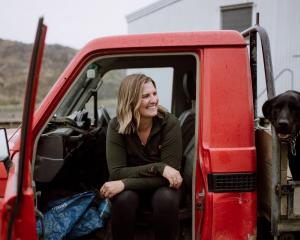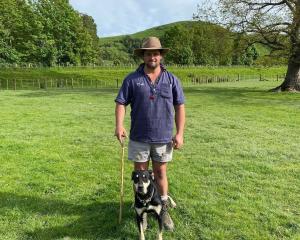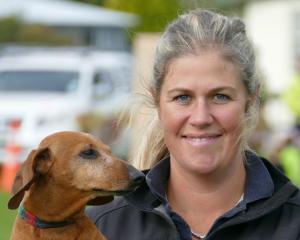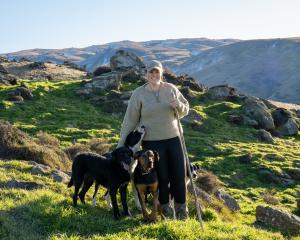
Brought up on a sheep and beef farm in the Ida Valley, he completed a science degree before travelling the world shearing and then moving into the corporate world.
Mr Anderson always wanted to return to the region in the latter part of his career and use his experience "to do something".
When the opportunity arose at MIC, it was too good not to take.
"It feels quite meaningful delivering back to the community something that really matters, for the last tranche of your career," he said.
Living on a lifestyle property at Hills Creek, he works in the MIC office in Ranfurly with business support manager Renee Weir.
The pair were keen to raise MIC’s profile; now there was a formal management structure in place, it was beginning to take a larger role in the rural Maniototo community.
One of the key focuses was understanding and engaging in the regulatory changes occurring and celebrating the positive aspects of irrigation; its contribution to a thriving rural economy and, therefore, the local community, he said.
MIC was set up to receive the headwork assets constructed by the Crown in the 1970s, which were sold by the Crown to the farmers that the scheme was designed to serve.
It is owned by three "distribution" companies: Maniototo West Side Irrigation Company Ltd, Maniototo East Side Irrigation Company Ltd and the Waipiata Irrigation Company Ltd.
MIC owns the headworks for the whole Maniototo Irrigation Scheme, which supplies water for hydro-electric generation to the two Manawa Energy (previously Trustpower) power houses on the scheme.
Water used for electricity generation is subsequently supplied to the distribution companies for their shareholders to use for irrigation, stock and domestic water supply.

One of the challenges was that, as farmers started to use their water more efficiently, they became busier, making it more difficult to dedicate time to governance.
For the past two decades, he had been in rural banking, most latterly with ASB, based in Dunedin.
He started "dipping his toes" into governance; he was on the board of the Otago Farmers Market Trust for a few years and had also been chairman of the board for a large-scale dairy farm at Puketoi, owned by a group of mostly Maniototo-based shareholders. It was his involvement with that company which saw him represent Maniototo West Side for MIC.
It became evident that MIC needed to move to a formal management structure "to address things people were aware of but didn’t have the time to put in", both from an operational perspective and getting involved with wider stakeholder groups, including the Otago Regional Council.
Mrs Weir also brings a diverse range of skills to MIC. Originally from Oamaru, she trained as a hairdresser in Dunedin and then completed her primary teaching degree.
Married to Maniototo sheep and beef farmer and fellow St Kevin’s College alumnus Gerard Weir — the couple have a young family — she did some kindergarten teaching and then worked for ICL Chartered Accountants, which she thoroughly enjoyed.
While there, she was contracted to MIC to do some work and, when the job at the irrigation company arose, it was "too hard to say no", Mrs Weir said.
MIC became involved with workshops the Otago Regional Council ran before Christmas on the new land and water plan and that provided some understanding of what other stakeholders were thinking. There were a "whole lot of participants" in the process and that needed to be respected.
For Mr Anderson, growing up in the area and also his own association with farming, had proven invaluable as he understood the rural community.
He described it as a "breath of fresh air", adding that was no disrespect to the corporate world, which he had enjoyed and which gave him the skills to do his latest role.
"It’s a great way to spend the last years of your career doing something really tangible and meaningful and delivering something for the whole community."




